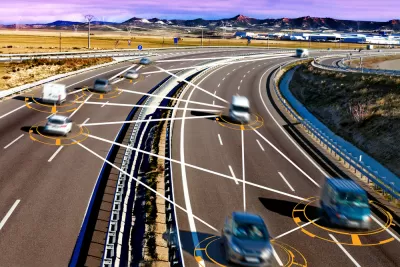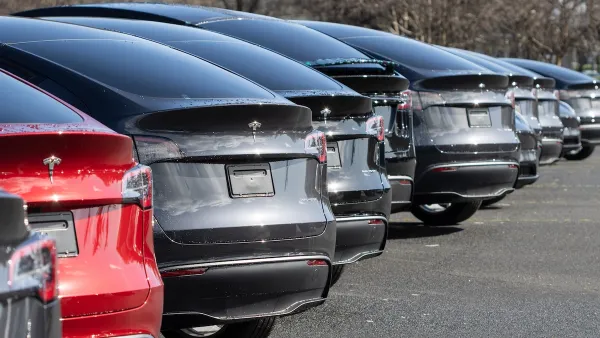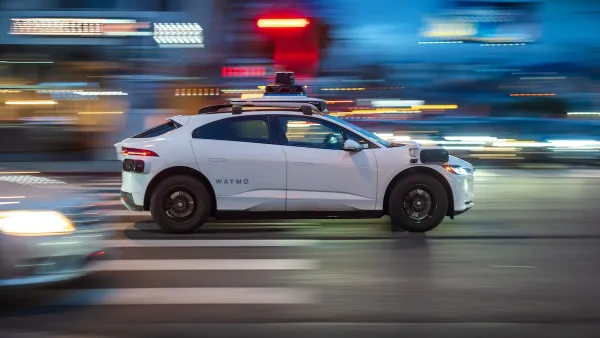The complex algorithms used by self-driving vehicle technology use massive amounts of energy, which could lead to a steep rise in carbon emissions as autonomous cars become more commonplace.

A new study from the Massachusetts Institute of Technology (MIT) warns that, without changes in technology, the growth of autonomous vehicles will spur massive energy consumption. As Rima Sabina Aouf reports in Dezeen, “The study found that with a mass global takeup of autonomous vehicles, the powerful onboard computers needed to run them could generate as many greenhouse gas emissions as all the data centres in operation today.”
As Aouf explains, “The high emissions are the result of the huge computing workload placed on each self-driving vehicle.” The vehicles use ‘deep neural networks’ to constantly make inferences that drive decisions. According to the study, “One billion vehicles would make 21,600 trillion inferences. To put that into perspective, the researchers say all of Facebook's data centres worldwide currently make a few trillion inferences each day.”
Study co-author Soumya Sudhakar says that “If we just keep the business-as-usual trends in decarbonisation and the current rate of hardware efficiency improvements, it doesn't seem like it is going to be enough to constrain the emissions from computing onboard autonomous vehicles.”
Autonomous car manufacturers can get ahead of the problem by working to improve the efficiency of their hardware and algorithms. “In a scenario where 95 per cent of global vehicles are autonomous in 2050, the study suggests that the technology's efficiency must double about every 1.1 years, such that each autonomous vehicle is consuming less than 1.2 kilowatts of energy for computing.”
FULL STORY: MIT study finds huge carbon cost to self-driving cars

Planetizen Federal Action Tracker
A weekly monitor of how Trump’s orders and actions are impacting planners and planning in America.

Map: Where Senate Republicans Want to Sell Your Public Lands
For public land advocates, the Senate Republicans’ proposal to sell millions of acres of public land in the West is “the biggest fight of their careers.”

Restaurant Patios Were a Pandemic Win — Why Were They so Hard to Keep?
Social distancing requirements and changes in travel patterns prompted cities to pilot new uses for street and sidewalk space. Then it got complicated.

Albuquerque Route 66 Motels Become Affordable Housing
A $4 million city fund is incentivizing developers to breathe new life into derelict midcentury motels.

DC Area County Eliminates Bus Fares
Montgomery County joins a growing trend of making transit free.

Platform Pilsner: Vancouver Transit Agency Releases... a Beer?
TransLink will receive a portion of every sale of the four-pack.
Urban Design for Planners 1: Software Tools
This six-course series explores essential urban design concepts using open source software and equips planners with the tools they need to participate fully in the urban design process.
Planning for Universal Design
Learn the tools for implementing Universal Design in planning regulations.
Heyer Gruel & Associates PA
JM Goldson LLC
Custer County Colorado
City of Camden Redevelopment Agency
City of Astoria
Transportation Research & Education Center (TREC) at Portland State University
Camden Redevelopment Agency
City of Claremont
Municipality of Princeton (NJ)





























